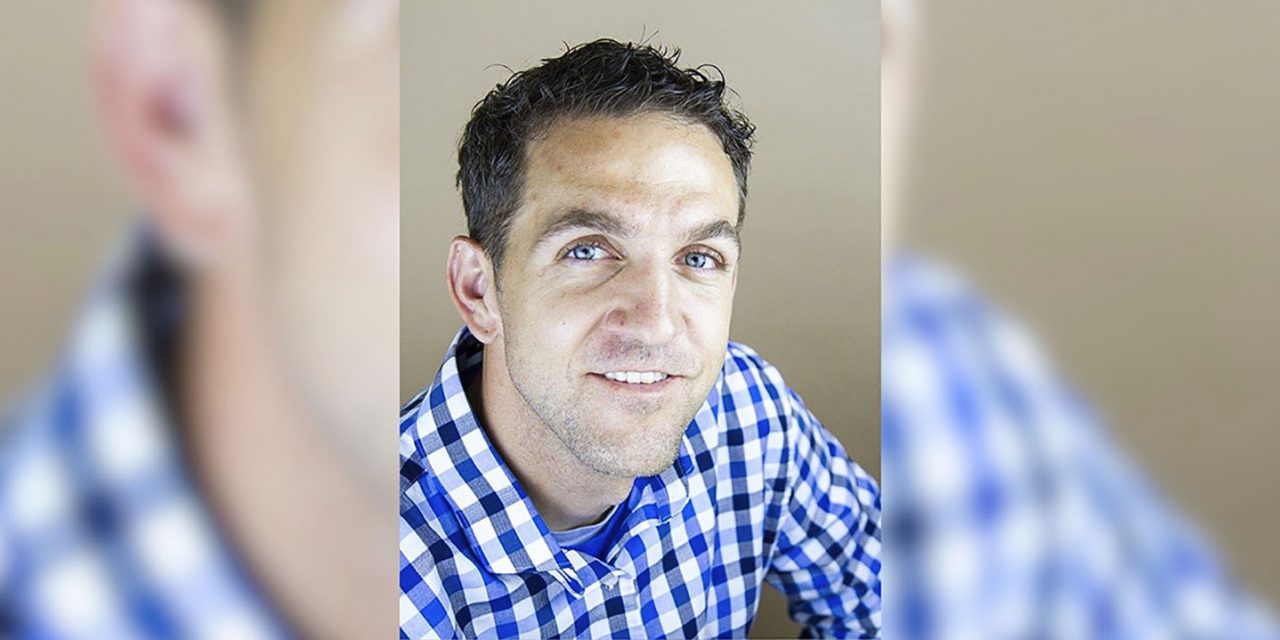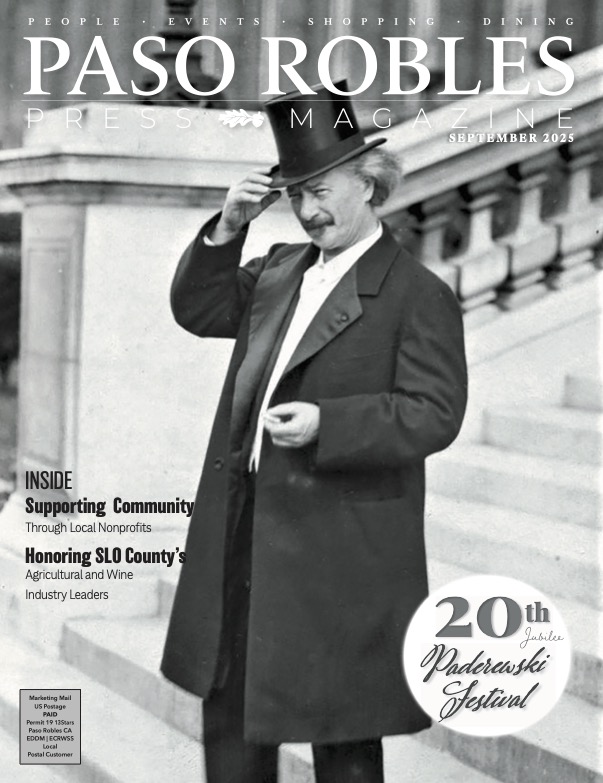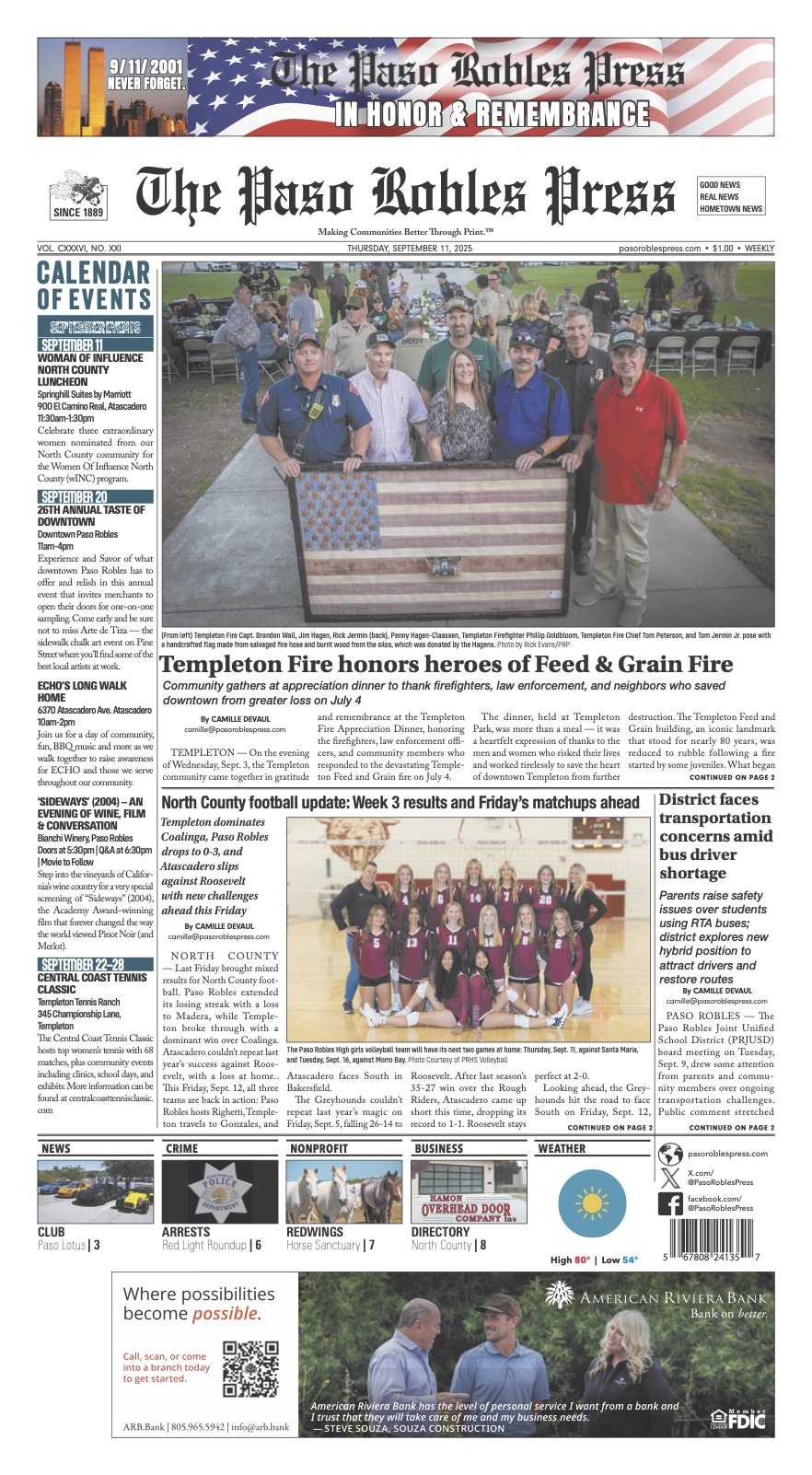With the news of McClatchy filing bankruptcy yesterday, we hardly had time at The Paso Robles Press and The Atascadero news to even take notice. Sure, I saw the news on sanluisobispo.com first thing this morning, but really wasn’t something newsworthy enough to read into very far because their stock prices, pension woes, and debt were more than any company would be able to overcome without a federal buyout.
So, Chapter 11 it was for McClatchy. As a business owner, I realize that their problems were more than just a local issue, a print issue, or a content issue — the company made a massive purchase of Knight Ridder in 2006, right before the market crashed in 2007 and the company as a whole never really recovered from the debt load. Unlike The New York Times, which has been able to figure out how to remain relevant to its readers and profitable, McClatchy was forced to gut its staff and continually reduce its ability to remain either relevant or profitable.
When the news broke, I went online to read about it. I tried to go to the source and read right off the Tribune site but hit a paywall and was asked for two bucks to read any further than the headline. So I got info elsewhere.
What entertained me the most is how McClatchy was reportedly going about business as usual. Given the track record, nothing should be more concerning to stakeholders than McClatchy running business as usual.
The other note I read spoke to McClatchy’s intent to shed print costs and speed shift to digital. That statement struck me as the admission of what many have already predicted — the final days of the Tribune’s printed version.
We all saw this coming.
While newspapers around California have found their equilibrium, with robust editions circulating around California with stately grace, it was hard not to notice the sad state of McClatchy pubs, even in the headquarter neighborhood of Sacramento where the Bee had no buzz.
So with the state of newspapers, my wife and I ventured to bring The Paso Robles Press and The Atascadero News back to esteem because unlike McClatchy, we are able to run a relevant and profitable company. We currently employ nine local residents, provide freelance work for dozens of local writers, photographers, and designers, providing print to 60,000 addresses from San Miguel to Avila Beach.
When we stabilized the local newspapers, I reflected on the industry. Trib was on life support, but there was a decisive difference between the casualties of the recession and the survivors thriving companies that have built services that add value to their communities and connect their readers with events, business, information, and the facts that give democracy a slight edge over the competition.
The next generation of print is being born, and it has seven heads — the black stuff on the white pages are anything but dead. And you know because you read this far. We are there with you, sharing your voice, telling your story, and keeping your community history like nothing else ever will.
Print is the trunk of the storytelling tree. If it dies, it all dies. But it is anything but dead.
The next generation of history is being written right now, and the word will be there to inspire and uplift, intrigue and explain, question and answer.
As a company, we operate like a startup and are as limber as we are strong. We operate one of the largest print networks in California, right here in Paso Robles and Atascadero. We also run the most popular news sites in the Paso Robles and Atascadero areas.
It’s possible we are weeks away from being the last local newspapers printing at least once a week, but that is just a fraction of our business.
While it’s a fraction of what we do, it is probably the most important thing we do for the community.
I’d love to say we are unbiased, but we aren’t. We are biased against all unethical behavior that corrupts our communities, from local city councils to school boards, police departments and sheriff’s offices, real estate deals and misinformation campaigns.
It’s the journalists who are bringing cold cases to life, and journalists who are reminding politicians that we see you. It all starts with good print, no matter where it ends up — radio, television, podcasts, internet broadcasting, and more.
I’m not going to predict the future of news, but I can tell you we are seeing it happen and it is exciting. The next phase will be the distinction between the fake news and the real news, and on that, we already have the lead.
How do we know? Because we have readers smart enough to read this far, and publishers smart enough to know that.
So, for the foreseeable future, we’ll keep doing what we do … Making Communities Better Through Print, and leading the online news market with the best news fit to share.
Thank you for reading,
Nicholas Mattson












